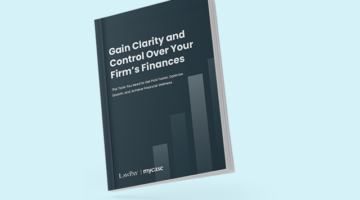 Many law schools have been accused of what one of my symposium speakers has called “jukin’ the stats.” That is, some schools in the past have taken to lying about their data in order to manipulate their position in the all-important law school rankings game. That is not cool.
Many law schools have been accused of what one of my symposium speakers has called “jukin’ the stats.” That is, some schools in the past have taken to lying about their data in order to manipulate their position in the all-important law school rankings game. That is not cool.
However, that isn’t what happened at Pepperdine. Pepperdine made an innocent mistake, took immediate steps to correct it, and then faced a draconian penalty for its honestly. That is the topic of today’s post: What should U.S. News have done?
The key player in all of this is U.S. News. While there are many different rankings of law schools, the only one prospective students seem to really care about is U.S. News. For a while, U.S. News didn’t really seem to care about the veracity of the data submitted by law schools. And perhaps it wasn’t until the ABA started cracking down that they became concerned.

Take Control Of Your Firm’s Finances With Tools Built For Success
Position your firm for long-term growth with better financial visibility and control. Learn how to track performance, manage spending, and plan strategically—download the full e-book now.
There are two issues at stake. Unless we want to grant U.S. News investigative powers akin to the FBI or B613 (see Scandal), there must be some incentives for law schools to correct their honest mistakes and self-report rather than deliberately cheat, bury the bodies, and hope no disgruntled ex-employees drop a dime on them to U.S. News and the ABA. Second, there needs to be some way to distinguish the honest mistake from a deliberate obstruction of ranking justice. (Both LawProfBlawg and TempDean volunteer for rankings special counsel if it ever comes to that.)
Our concern is that U.S. News can do pretty much whatever it wants to a law school that supplies incorrect data, short of a libel suit. It could remove Pepperdine from the rankings completely. It could correct the rankings. It could punish them for two years. There is nothing that U.S. News can’t do, and therein lies the problem.
As numerous commentators have pointed out, U.S. News’ reaction creates a terrible precedent. If you are punished for being honest, what’s the incentive to report an honest mistake? Much like Steve Martin once said in “A Wild and Crazy Guy,” this is a “death penalty for parking violation.” It deters people from reporting honest mistakes. To the extent that people know of willful violations, prospective reporters might think twice if they think that U.S. News will nuke the school, which affects innocent people and the guilty alike.
For that reason, we believe that U.S. News ought to have a leniency program to report innocent violations. A leniency program would assure that the data in U.S. News rankings maintains its accuracy. A law school that demonstrates that: a) the error was not knowingly or intentionally made; b) the error was reported in a timely manner; and c) it has taken measures to assure the error will not happen again would be rewarded for its honestly by not facing any penalty apart from a true and correct adjustment to their ranking.

Best Practices In Trust Accounting: What Every Lawyer Needs To Know
Learn legal trust accounting best practices to ensure compliance and protect client funds. Discover expert tips to set your firm up for success.
Leniency programs (and related whistleblower, bounty, and qui-tam provisions) work in varying degrees in the real world in such diverse areas of the law as tax fraud, securities fraud, antitrust, and health care. The more successful ones achieve a balance between incentives to cooperate and some appropriate punishment for the circumstances of the wrongful conduct.
If the law school fails to meet these standards for leniency, or if it is caught red-handed in deliberate shenanigans (sorry to use technical jargon), the penalty should be clear to assure that the penalty isn’t arbitrary or varies based on law school ranking. This assures transparency and fairness in the process.
The reason for our concern is that U.S. News operates as the border between an unregulated monopoly and a quasi-governmental body. A law school that crosses that border can be punished. It could be banned. It could be destroyed. In other words, U.S. News has a whole lot of unregulated real world power. It needs to be careful how it uses it. The article we mention in the first paragraph suggests some FTC regulation to assure that consumers of the U.S. News rankings (namely prospective law students) aren’t injured. We don’t think that will ever happen.
Nor do we think that the law schools will rise up if U.S. News mistreats one of their own. Apart from the potential antitrust implications, there just isn’t incentive to stick their necks out for competitors by unfair U.S. News penalties.
Nor do we think people will stop caring about U.S. News rank. At this point, law schools at the top are too entrenched by the reinforcing nature of the rankings. And schools at the bottom potentially believe they can make the climb.
So, the only option is for U.S. News to step up and make their penalties clear and put into place a leniency program such to preserve the integrity of the rankings, and provide the incentive to fix the innocent mistakes law schools sometimes make.
TempDean is an anonymous professor and current or former interim administrator at a top-100 law school. Email him care of [email protected] if you must.
LawProfBlawg is an anonymous professor at a top-100 law school. You can see more of his musings here. He is way funnier on social media, he claims. Please follow him on Twitter (@lawprofblawg) or Facebook. Email him at [email protected].